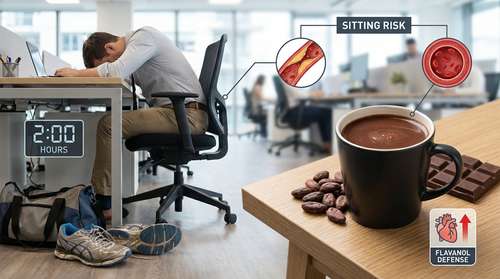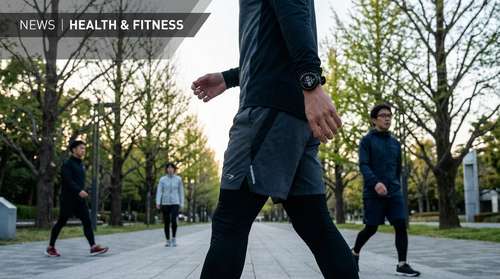Sitting for extended periods has become an integral part of modern life.
With the rise of sedentary jobs, transportation, and leisure activities, many people spend more than half of their day seated. It's no wonder that sitting has become a significant health concern.
The Annals of Internal Medicine published a study of 8,000 adults last year.
The study showed an association between prolonged sitting and the risk of early death from any cause, including back pain, obesity, metabolic syndrome, heart disease, and even cancer.
Other studies revealed that people with moderately intense physical activity for 60 to 75 minutes countered the effects of prolonged sitting.
Eric K. Holder, a specialist in the nonsurgical care of patients with musculoskeletal issues, said, “Prolonged sitting is one of the main causes for many of the conditions treated in my musculoskeletal clinic.”
In this article, we'll explore the problems associated with sitting, discuss the associated health risks, and discuss preventive measures we can take to avoid or minimize these risks.
Also read: 32 Physical and Mental Health Problems of Consuming Ultra-processed Foods
Sitting Health Risks
1. Low back pain and spine issues
Dr. Holder says prolonged sitting stresses spinal structures and other joints, such as the shoulders and hips, especially when sitting with poor posture.
Whenever we sit at our computers, we often slouch, stretching our necks forward, which, over time, can lead to persistent postural misalignment.
Sitting can also lead to early muscle fatigue, weakened core stabilizers, and tightened hip flexors, increasing stress on the lower back and reducing spine flexibility.
2. Weight gain and obesity
Wajahat Mehal, director of the Yale Medicine Metabolic Health & Weight Loss Program, said certain studies show an association between prolonged sitting and weight gain, with an especially strong link to diabetes.

Prolonged sitting can make you overweight | Shuttersock
Around a century ago, staying active was a fundamental part of our daily routines.
If you wanted to have a chat with your neighbor, you'd simply stroll over.
Nowadays, many people eat their meals at their desks or in front of the TV, which causes distractions while eating. This habit increases the risk of consuming larger portions, making portion control crucial for maintaining a healthy weight.
3. Heart disease
Cardiologist Rachel Lampert, MD, says The body has various negative reactions to sitting for long periods.
In addition to decreased blood flow to the legs, sitting affects things like sugar regulation and blood pressure by altering the normal function of blood vessels.
“The more you sit, the more likely you are to have a heart attack or die from a cardiac cause,” says Dr. Lampert. It's a distinct contributor, along with how much physical activity you are getting.
Also read: Healthy snacking: Eating nuts and seeds can decrease risk of heart disease by 20%
Breaking The Sitting Cycle
1. Take intermittent breaks and incorporate physical activity: Get up from your desk or couch every 30 minutes to pump blood out of your calf muscle and increase blood flow. Also aim for about 150 moderately intense physical activity per week.
2. Use a standing desk: To reduce sitting time, consider using a standing desk or improvising with a high table or counter.
3. Walk while working: To increase movement, try using a treadmill desk or taking a walk while on phone calls.
4. Give your food undivided attention: Don’t eat lunch while browsing online or reading the news. Eat first, then attend to other needs.
By understanding the problems associated with sitting for long hours and the associated health risks, we can take steps to reduce these risks and improve our overall health.
Remember, movement is key to maintaining good health, so get up, get moving, and break the sitting cycle!




